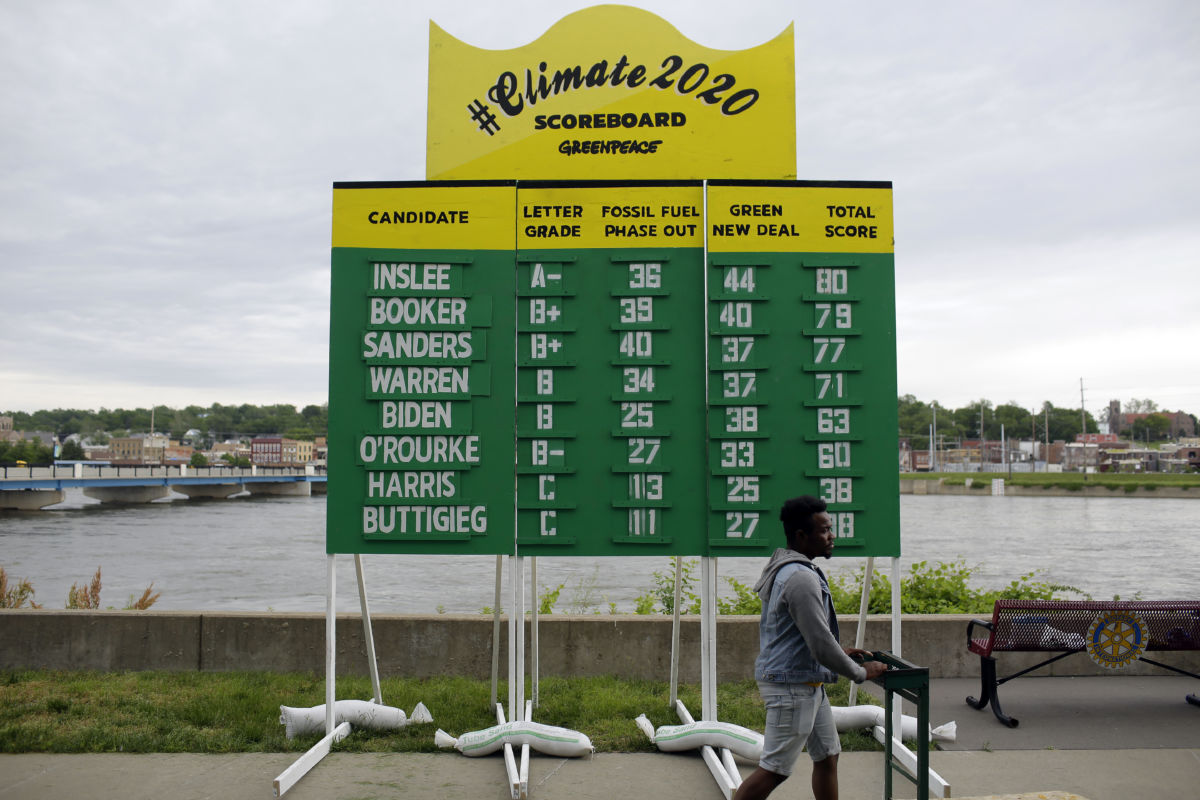In First Debate, 2020 Candidates Must Step It Up on Climate Change
The first Democratic primary debates take place this week, which means the 2020 U.S. presidential campaign season is officially in full swing.
The candidates will debate a wide range of issues, from immigration to infrastructure and economic inequality to gun violence. But when it comes to the issue of climate action — whether you are a passionate climate activist or simply a conscious consumer — there is one question to look out for more urgently during this debate and throughout election season: Which candidates realize the next U.S. president will decide the world’s climate future?
Why the Next President?
Experts agree we must reach incredible emissions reduction targets within the next 10 to 14 years or we will have hit an effective tipping point with no realistic path for avoiding catastrophic levels of warming.
So far, we’re not tracking well. The United States’ emissions actually grew by an estimated 2.5 percent in 2018. Barring an unlikely platform and policy shift of the current U.S. administration, we’re stuck with this math.
The 2020 presidential election is a year and a half away, which leaves eight years — just two presidential terms — for the United States and the rest of the world to achieve emissions targets.
For those keeping up: If the next president of the United States — Democrat or Republican — does not make drastic moves in the next term to set us on the right path, we will have only four years in which to squeeze 10 years’ worth of emissions reduction targets. Statistically and practically speaking, that rate of reduction is next to impossible.
So, our climate emergency must be addressed by the next president. Because the one after will be stuck watching as our house burns downwith no tools powerful enough to douse the flames.
Setting the Agenda
In this election cycle, there are dozens of issues that deserve to be a part of and at the forefront of the conversation.
Surely, climate action is among them. The question, though, becomes to what extent will candidates treat climate action with a political and cultural urgency that matches the scientific ultimatum spelled out in the Intergovernmental Panel on Climate Change’s “countdown clock” report?
The Democratic candidates’ platforms so far are not even up to par. The Washington Post analyzed candidates’ social media profiles, outlining the percentage breakdown each spent posting about major issues. For the top seven candidates, an average of under 10 percent of posts mentioned issues surrounding climate change.
This is inadmissible. The gravity of our climate emergency means 2020 candidates need to step it up or step aside.
Deciding the Democratic Nominee
It’s seemingly certain that President Trump will carry the Republican nomination. For the Democratic nominee, everyone — voters, donors, journalists, and even organizations, politicians and celebrities — will play a crucial role in the makeup of the field leading up to and during the primaries.
In that same vein, each of these groups can also play a critical role in bringing the urgency of climate action to the forefront of what should really be called the Climate Emergency Election.
If you are a voter or donor, realize there is no rush to support a single candidate today. Wait until it’s clear how far each will go to meet emissions targets before you pledge your support. Write and call the offices of your top choices, press them on how committed they are to taking action, and ask why they have not committed to going further. Do not settle for half-hearted support of initiatives like the Green New Deal or re-entering the Paris Accord — those policies are a baseline starting point, but make sure whomever you end up voting for is committed to going even further.
If you are in a position of influence and can publicly endorse a candidate: wait. Use your voice outside of a campaign to start a loud and powerful conversation around climate action. Scope out which candidates rise to your challenge and realize that they — as the potential next president of the United States — have the power to ensure bold steps are taken to put us on target during their tenure.
If you are a journalist, continue covering the climate emergency in your work and ask the candidates tough questions. That does not always mean defaulting to, “How are you going to pay for it?” but insisting, “How are you going to make sure that commitment is fulfilled?”
This may all seem sensationalist, and it is for good reason. The United States has been sleeping on this issue for far too long, and we’re now left with a harrowing amount of work ahead if we want to catch up.
We may not all consider ourselves climate activists, but if we are serious about our planet’s future, none of us — especially the next president of the United States — can afford to not become one.

Aucun commentaire:
Enregistrer un commentaire